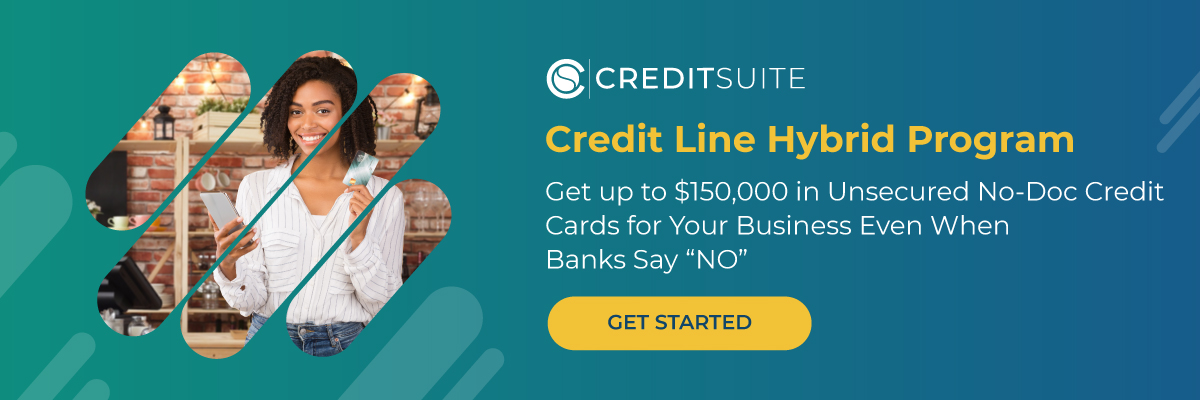What Small Business Loan Options are Out There and Which Ones Are Best for You
Funding a small business is no easy task. There are an overwhelming number of funding options. From small business loans to crowdfunding, and a seemingly infinite number of possibilities in between, it can be hard to choose. For most, it will take some combination of these to get the job done. It can help to know your small business loan options. There may be more than you think.
Small Business Loan Options: Lenders
The first decision to make is what type of lender to use. A lot of business owners think that it’s a bank or bust. There are a few different types of lenders to consider when looking at your small business loan options however.
Big Banks
These are those nation-wide institutions like J.P. Morgan Chase and Wells Fargo. As a general rule, they are not a friend to small business. There is nothing specific that they hold against smaller businesses. It is simply that these businesses do not generally meet their lending requirements. It’s all numbers. If you don’t have the numbers, you don’t get the funding.
Community Banks
Community banks are the smaller, local financial institutions. They are the “hometown” banks, if you will. These guys are friendlier toward small businesses. They are able to look a little deeper and see a tad bit more than the numbers.
Their small business loan options may have slightly less strict eligibility requirements. However, it is still a numbers game. Whatever those numbers are, whether credit score, annual income, years in business, or some combination, you will have to have them to be eligible.
Credit Union
Credit unions come in large and small sizes as well. The main thing to remember is that you must be a member to get a loan from a credit union. They do usually offer more favorable interest rates however. If you are a member of one, be sure not to count them out when shopping around for loans.
Alternative Lenders
Alternative lenders generally function online, though some do have brick and mortar locations. Their main draw is that they offer small business loan options to those that may not qualify with traditional lenders. Their credit score requirements are lower. They may or may not require a certain amount of time in business or minimum revenue amounts.
The main drawback is that their small business loan options typically have higher interest rates.
Small Business Loan Options: Types of Loans
In addition to the types of lenders, there are various types of loans including:
Traditional
These are the standard loans that disperse a set amount of funds, with the borrower repaying over a certain period of time. The payment is the same each month, and they can be either secured or unsecured. Unsecured small business loan options usually have higher interest rates.
Line of Credit
This is revolving debt similar to credit cards. Borrowers are given a maximum limit of the amount of funds they can use, but only pay back the amount that they actually use. For example, a borrower may have a $5,000 line of credit and use $2,000 to buy a new printer. They will only pay back $2,000, until the time comes that they choose to use more. Lines of credit can also be secured or unsecured.
Invoice Factoring
Factoring invoices is an option if you have receivables. The lender basically buys unpaid invoices from you at a premium, meaning you do not get full value. You then have immediate cash however, for those open invoices. The lender collects from the consumer directly at full value. The older the invoice, the higher the premium.
This is due to the fact that the likelihood of collecting on the invoice goes down the older the invoice gets.
Merchant Cash Advance
If you accept credit card payments, a merchant cash advance can help you out in a cash pinch. It is basically just what is says. It’s a cash advance on predicted credit card sales. They base the amount of the loan off of average daily credit card sales, and then take payment from future credit card sales. This usually happens electronically.
Most often, the process is automatic. The draw is that you get the funds fast, and there are usually more flexible options for repayment terms depending on your eligibility.
Small Business Loan Options: The Small Business Administration
No discussion of small business loan options would be complete without mentioning the SBA. While they do not lend funds themselves, they do administer a number of loan programs that help small businesses get the funds they need through partner lenders.
7(a) Loans
This is the Small Business Administration’s most known program. It provides federally funded term loans up to $5 million. The funds can be used for a number of purposes. These include expansion, purchasing equipment, working capital and more. Banks, credit unions, and other specialized institutions, in partnership with the SBA, process these loans and disburse the funds.
504 Loans
504 loans are also available up to $5 million and can buy machinery, facilities, or land. Typically, they are used for expansion. They work especially well for commercial real estate purchases.
Microloans
These are $50,000 or less. They are good for starting a business, purchasing equipment, buying inventory, or general working capital.
SBA disaster loans
This is a program available to businesses that have fallen victim to natural disasters. These loans are different because, unlike the others, the SBA actually processes them directly rather than using partner lenders.
SBA Express Loans
The turnaround for express loans is much faster, with the SBA taking up to 36 hours to give a decision. There is less paper work as well, making express loans a great option if you qualify.
SBA CAPLines
There are 4 different CAPLine programs. They differ mostly in how the funds can be used. The maximum on each is $5 million. It can take 45 to 90 days for the funding on CAPLines to come through.
SBA Community Advantage Loans
This is a pilot program. It will either expire, or the SBA will extend it in 2020. Its purpose is to promote economic growth in underserved areas and markets. Decision makers look past such things as poor credit or low revenue if the business has the potential to create jobs or promote economic growth in underserved areas.
These are some of their most popular programs. The Small Business Administration does so much more for small businesses in addition to these. Get more details on the SBA, these loan programs, and additional resources offered by the Small Business Administration here.
5 Specific Small Business Loan Options
Now, you are probably here because you need to know specifically where to go to get a small business loan. As you have seen, the possibilities are endless. However, here are some of our favorite online lenders for those that may be having trouble qualifying for loans.
Upstart
Upstart is a fairly new online lender that is using cutting edge technology. They question whether financial information and FICO alone can really determine the risk associated with a specific borrower. Instead, they are using a combination of artificial intelligence and machine learning to gather alternative data. They then use this data in the credit decision making process.
Alternative data includes such things as mobile phone bills, rent, deposits, withdrawals, and even other information less directly tied to finances. Software from the company uses this data, then learns and improves on its own.
They offer various types of financing products to fit a broad range of needs. From credit card refinancing to student loans, and pretty much anything in-between, there is something for everyone. Debt consolidation and personal loans are included, in addition to business loans.
You can get a quote on a loan to start or expand a business. Quotes are available online in a matter of minutes. Learn more in this comprehensive review.
StreetShares
StreetShares started as a service to veterans. Now, they offer term loans, lines of credit, and contract financing. They also offer small business loan investment options. The maximum loan amount is $250,000. Pre-Approval only takes a few minutes. They use a soft pull on your credit so it doesn’t affect your score.
To be eligible, you must be in business for at least 12 months with annual revenue of $25,000. Exceptions are possible, with loans to companies in business for at least 6 months with higher earnings happening on a case by case basis. The borrower’s credit score must be at least 620. For more on StreetShares, see our in-depth review.
Kabbage
Kabbage is a well know online lender. They offer a small business line of credit that can help businesses accomplish business goals quickly. The minimum loan amount is $500 and the maximum is $250,000. They require you to be in business for at least one year and have $50,000 or more in annual revenue, or $4,200 or more per month in the previous 3 month period.
They are great if you need cash quickly. Also, their non-traditional approach puts less weight on your credit score, so they may work better for some borrowers than other lenders.
Fundation
Fundation provides both term business loans online and lines of credit. It is most known for its working capital funding options. These are funds meant to help cover the day-to-day costs of running a business rather than larger projects. Typically, these funds come in the form of a line-of-credit.
Their minimum loan amount is $20,000 while the maximum loan amount they offer is $500,000. They require you to be in business for at least 12 months and have annual revenue of at least $100,000. To be eligible, your personal credit score must be no less than 600.
Additionally, you must have at least 3 full time employees. That number can include yourself. Business owners cannot live or operate their business in North Dakota, South Dakota, or Nevada.
SmartBiz
If you want the convenience of online lending but need to look toward products offered by the SBA, then SmartBiz is for you.
With the help of the Small Business Administration, SmartBiz offers loans that are government backed. While SBA loans typically take a lot of time and paperwork, SmartBiz found a way to speed things up. This makes getting loans through the Small Business Administration easier than ever. The minimum loan amount is $30,000 and the maximum is $5,000,000.
As stated, SBA loans are government-backed business term loans for business owners who’ve had difficulty qualifying for other types of financing. As such, the requirements are a little stricter. Your credit score has to be 650, and you have to be in business for 2 years or more.
In addition, annual revenue has to be $50,000 at least, and there can be no outstanding liens, bankruptcies, or foreclosures in the past 3 years.
Knowing Your Small Business Loan Options Can Help You Make the Best Decisions
Of course, a lot of the choosing will be done for you based on your qualifications. Your credit score, length of time in business, and annual revenue will make a difference. Still, knowing where to start based on what you have to work with is a huge first step.
If you are eligible for a loan with a traditional lender, you may find the lowest interest rates there. They tend to have the most favorable terms and rates. Their online counterparts typically have higher interest rates, but the loans are easier to qualify for.
However, if you are struggling with credit or just starting out, one of these 5 options for alternative lenders could be great. In addition, there is the option of traditional loans with the SBA programs, if you fall somewhere in between. Whatever you do, don’t jump in without doing your research.
Shop around with a variety of lenders to compare what they offer, what their requirements are, and figure out which lenders and loans will work best for your specific business. A little time spent on the front end doing this can save you a lot of time and money after the fact.


